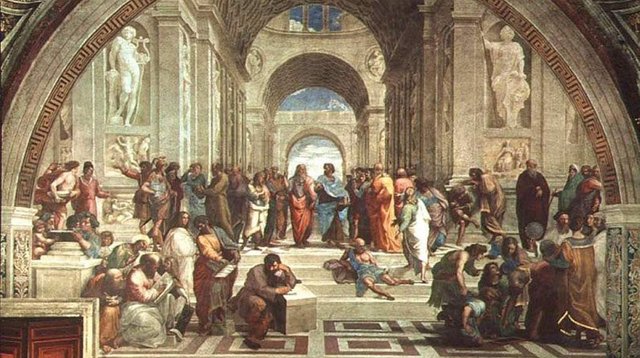Object and definition of Philosophy. Philosophy and worldview.
As far as philosophy and religion are concerned, the question of the relationship between philosophy and the worldview is largely answered. A worldview is the answer given to questions about the origin, the essence, the ultimate purpose and the meaning of the world and human life. The attitude of man towards the world is characteristic of his infinite diversity. Therefore, the worldview is a generalized system of views for the world as a whole, for the place of man himself and of the various phenomena in the world, this is a popular understanding and emotional assessment of the meaning of human activity, of his own and of the fate of the world, that is finally he whole body of scientific, philosophical, religious, legal and aesthetic beliefs and ideals of the individual, which determine the popular picture of the world as well as the way of human thinking and action. The notion of worldview can also be used in a narrower sense, for example: religious worldview, philosophical worldview, political worldview.
Under philosophy are understood rationally and systematically based on a certain scientific methodology attempts to find rational answers to the same questions. The very definition of the two concepts shows that the worldview is something wider in volume and more rooted in consciousness than philosophy, because in the outlook besides rational there are also irrational / non-sensible / elements. That is why man's philosophy determines his worldview, but on the contrary, the worldview seeks to equate rationally, so philosophy is created. But the worldview may not create a philosophy, and yet it exists so that people without a rational worldview, meaning without a philosophy in the strict sense of the word, have and will always exist but people without any attitude or conviction there are no fundamental questions about the world of life. So we can say: The worldview and philosophy are treated as part of the whole-worldview is the whole, and philosophy is only part of the whole, which does not always exist.
The irrational / non-intelligent / elements of the human view are divided into two categories: instinctual-vital / or biological and religious. They act in man in the form of instinctive tendencies; they direct his life struggle. They also influence the shaping and functioning of his mind. Reason is rooted in them, and they, according to Fechner's expression, carry it in its waves, as when it is not yet aware of it, so even when it is already grown and clearly aware of it.The biological heredity, the structure and health of the body, the studied spiritual talents, the natural environment, the social environment, the economic conditions, also the traditions, customs and customs of a society - all affect man and man even before he realizes it. The role of philosophy in this case is secondary: it can realize and explain the dependence the man of the irrational. It can even help to change it, but it can never overturn it. From a completely different character, it is religious, irrational in the human world. It is overly rational or supraational, because religion comes to respond through the Revelation and Faith to that question which the human mind, according to its own acknowledgment, can not answer after straining all its strength. It is natural that we should not imagine rational or rational as completely separate:
a / religion when religion acts - it is not isolated from reason and instinct;
b / reason when we have and reason-instincts do not interrupt;
c / instinct, when we have an instinct, we also have reason;

Philosophy is based on scientific understanding & it has backing of facts also. Can philosophy & religion be together @godflesh ?
In the Middle Ages, philosophy and religion were one thing. Then Hegel writes about the philosophy of religion. The brightest example that religion and philosophy are together is Kierkegaard. Of course there are conflict between them, but both are for searching the truth. The irational philosophers are not so much in the scientific understanding of the universe. This question is really complex.
You got a 23.19% upvote from @upme thanks to @godflesh! Send at least 3 SBD or 3 STEEM to get upvote for next round. Delegate STEEM POWER and start earning 100% from your share, daily payouts ( no commission ).
Quick delegation links: 25SP | 50SP | 100SP | 250SP | 500SP | 1000SP | 2000SP | 5000SP | Custom Amount